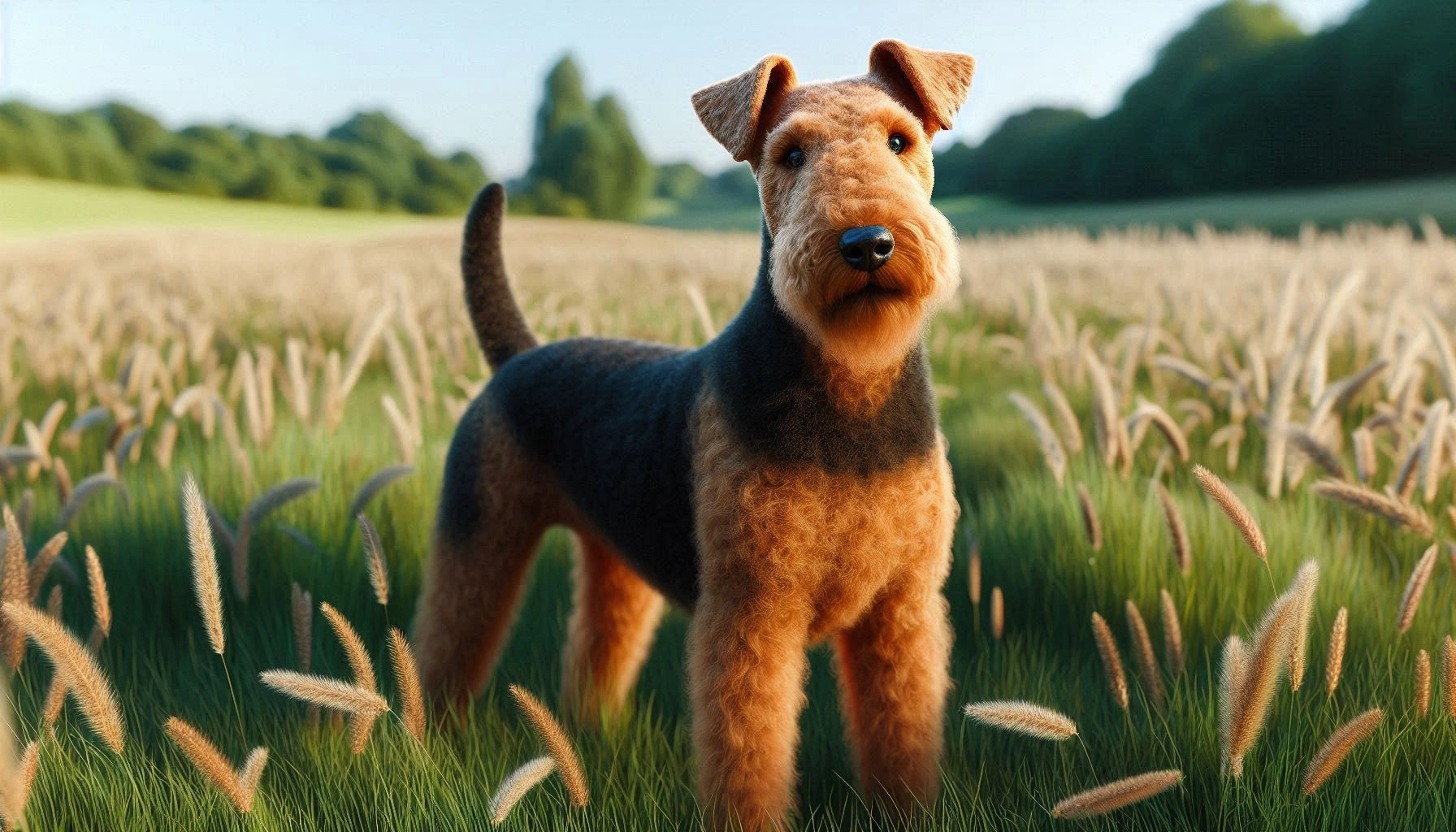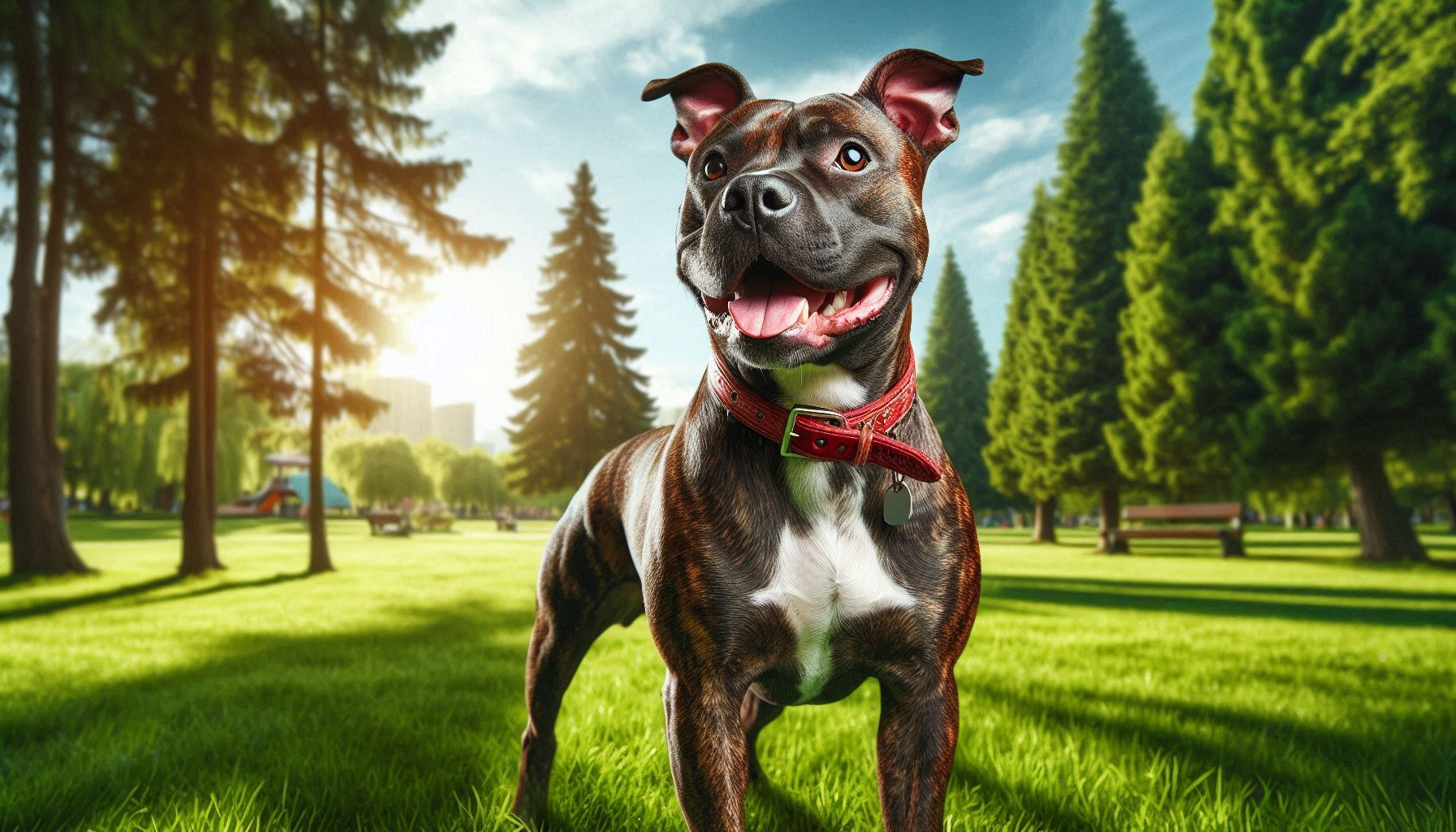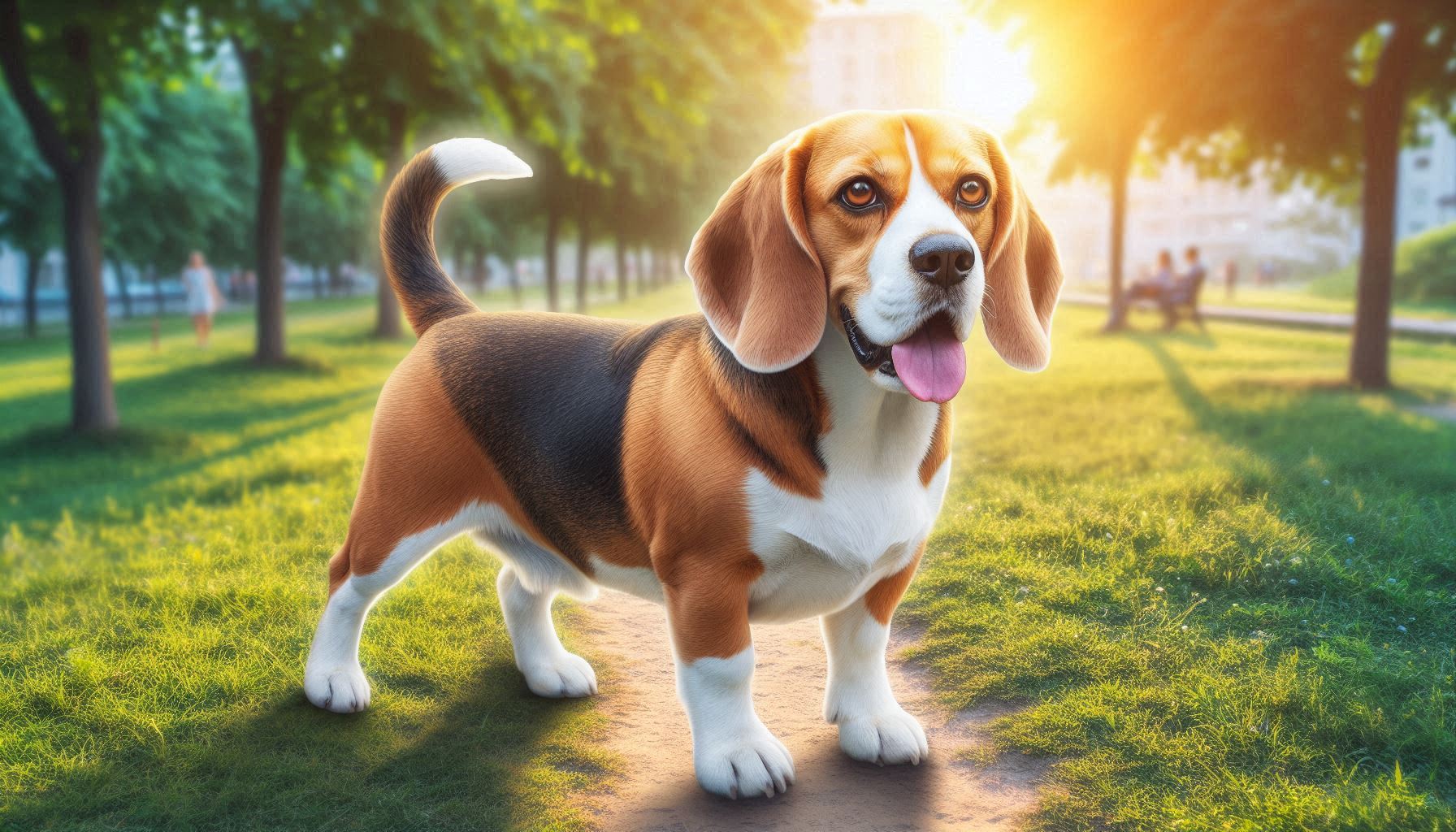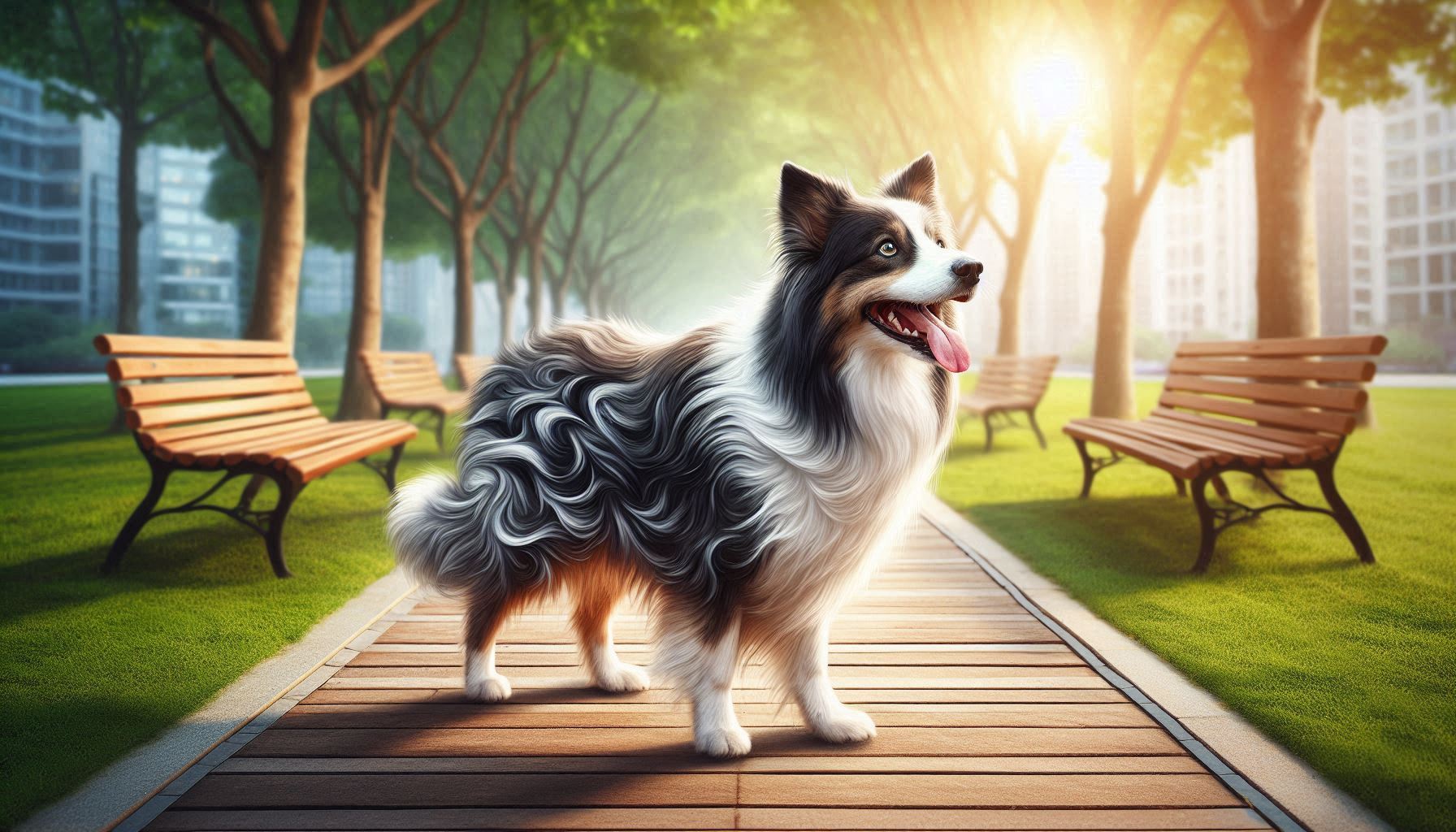Table of Contents
Old English Sheepdog Breed
The Old English Sheepdog, with its iconic shaggy coat and gentle demeanor, has captured the hearts of dog enthusiasts worldwide. Known for its distinctive appearance and amiable nature, this breed is not only a visual delight but also a loyal and loving companion. Whether you’re looking for a family pet or a devoted friend, the Old English Sheepdog offers a blend of playful energy and affectionate loyalty that’s hard to resist.
History and Origin
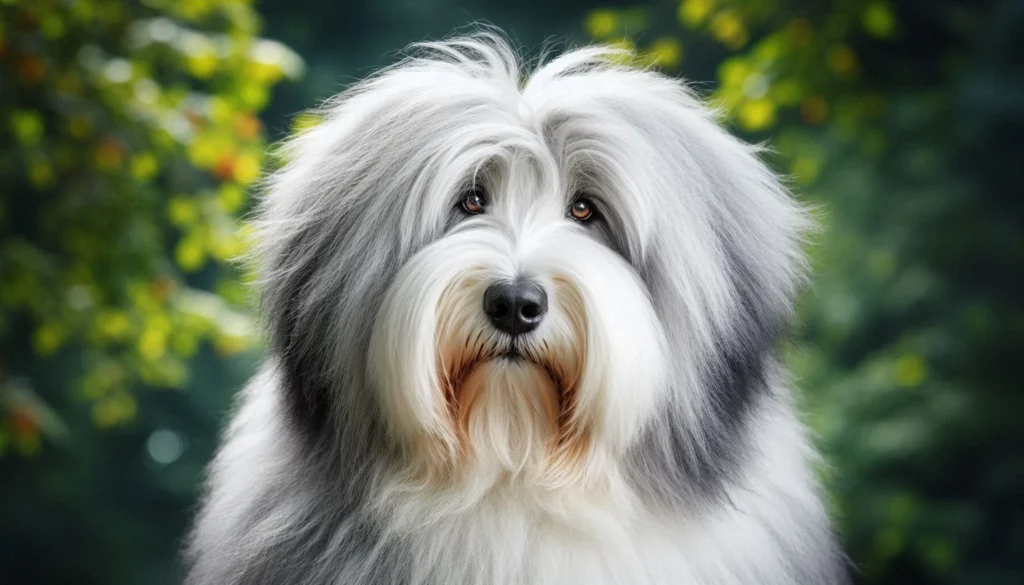
The Old English Sheepdog has a rich history that can be traced back to the early 19th century in England. Originally bred for herding sheep and cattle, this breed quickly became known for its herding prowess and ability to manage livestock with ease. Contrary to its name, the Old English Sheepdog is believed to have been developed from various European herding dogs brought to England.
One of the most interesting historical tidbits about the Old English Sheepdog is its association with the “bobtail” tradition. Farmers would dock the tails of working dogs to signify their exemption from livestock taxes, leading to the breed’s nickname, “Bobtail.” This practice has since fallen out of favor, but the Old English Sheepdog’s bobbed tail remains a distinctive feature.
Physical Characteristics
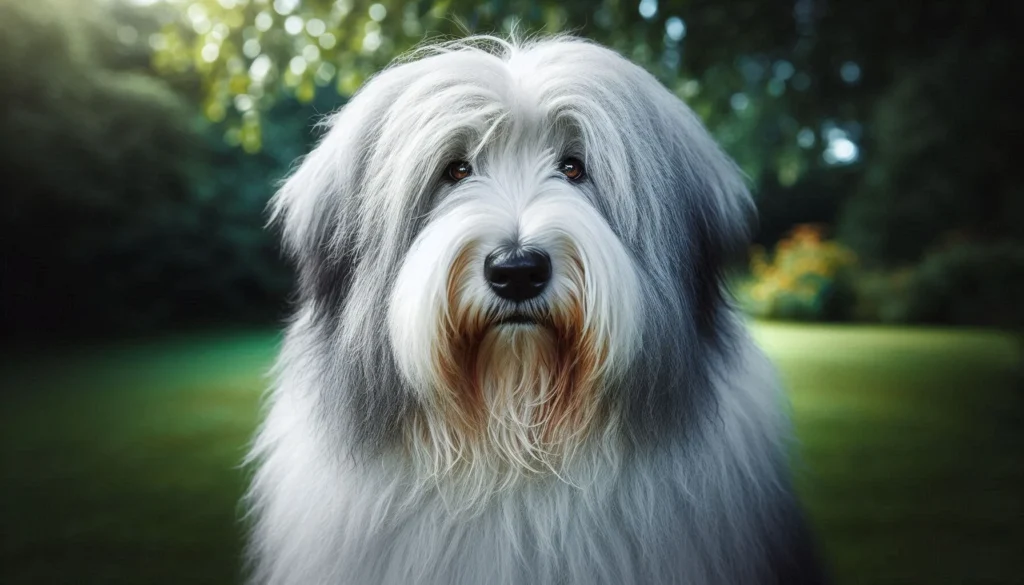
The Old English Sheepdog is a large and robust breed, with a strong and muscular build that reflects its working heritage.
Size
- Height: Males typically stand between 22 to 24 inches at the shoulder, while females are slightly smaller.
- Weight: Males weigh between 70 to 100 pounds, and females range from 60 to 85 pounds.
Coat Type and Colors
- Coat: The breed is renowned for its thick, double coat, which is long and shaggy on the outside, with a softer undercoat. This coat provides excellent insulation against harsh weather conditions.
- Colors: Old English Sheepdogs commonly come in shades of gray, blue, blue merle, and grizzle, often with white markings. Their color patterns can vary but generally include a mix of dark and light patches.
Distinctive Features
- Eyes: Some Old English Sheepdogs have striking blue or brown eyes, and it’s not uncommon to see one of each color.
- Tail: The breed is often born with a natural bobtail or has a docked tail, adding to its unique appearance.
Temperament and Personality
The Old English Sheepdog is a gentle giant with a heart full of love and playfulness.
Interaction with People
Old English Sheepdogs are known for their friendly and sociable nature. They form strong bonds with their families and are particularly good with children, often displaying a protective yet gentle demeanor.
Interaction with Children
This breed is often referred to as a “nanny dog” due to its patience and affection towards kids. Their playful nature makes them great playmates, and their protective instincts ensure they keep a watchful eye over the little ones.
Interaction with Other Animals
Old English Sheepdogs generally get along well with other pets, especially when socialized from a young age. Their herding background might make them prone to trying to herd other animals, but this behavior is usually harmless and can be managed with proper training.
Health and Lifespan
The Old English Sheepdog is generally a healthy breed, but like all breeds, they are prone to certain health issues.
Common Health Issues
- Hip Dysplasia: A common issue in larger breeds, hip dysplasia can cause discomfort and mobility issues.
- Progressive Retinal Atrophy (PRA): This genetic condition can lead to vision loss over time.
- Hypothyroidism: A condition where the thyroid gland doesn’t produce enough hormones, leading to various health problems.
- Deafness: Some Old English Sheepdogs may be born deaf or develop hearing issues later in life.
Lifespan
The average lifespan of an Old English Sheepdog is between 10 to 12 years. With proper care and attention to their health needs, many can live even longer.
Tips for Keeping the Dog Healthy
- Regular Veterinary Check-ups: Regular health screenings can catch potential issues early.
- Balanced Diet: A nutritious diet tailored to their needs helps maintain their overall health.
- Exercise: Regular exercise helps keep them fit and mentally stimulated.
- Grooming: Proper grooming is essential to prevent skin issues and keep their coat in good condition.
Care and Grooming
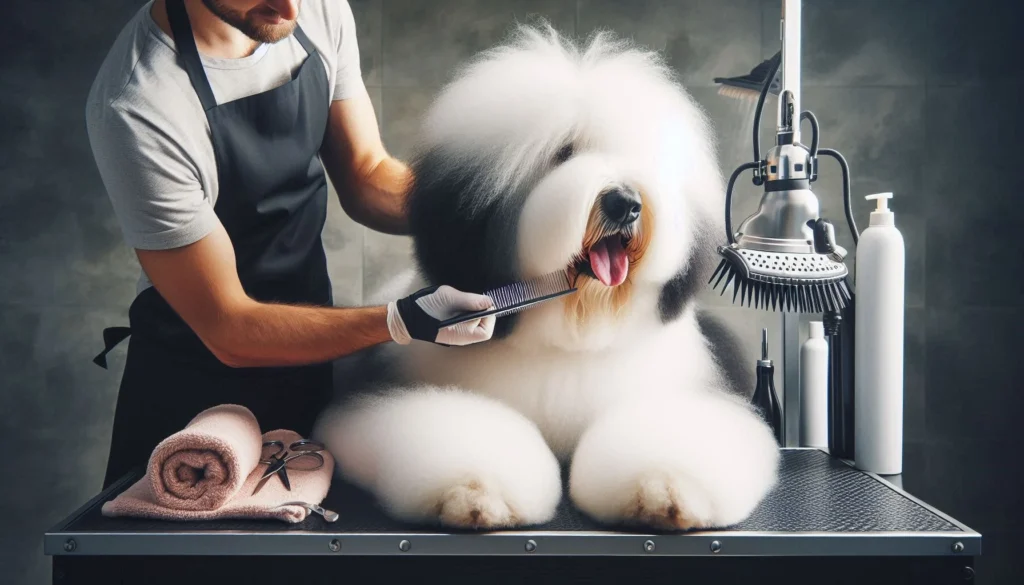
Caring for an Old English Sheepdog requires dedication, particularly when it comes to grooming.
Grooming Needs
- Brushing: Their thick, double coat requires regular brushing, at least three times a week, to prevent matting and tangles.
- Bathing: Occasional baths are necessary to keep their coat clean, but too frequent bathing can strip natural oils.
- Trimming: Regular trimming around the eyes, ears, and paws helps maintain their comfort and cleanliness.
- Dental Care: Regular brushing of their teeth helps prevent dental issues.
Exercise Requirements
Old English Sheepdogs are energetic and require regular exercise to keep them happy and healthy. Daily walks, playtime, and opportunities to run in a secure area are important to meet their physical and mental needs.
Dietary Recommendations
A balanced diet rich in high-quality protein, healthy fats, and essential vitamins and minerals is crucial. Consulting with a veterinarian can help determine the best diet based on their age, weight, and activity level.
Training and Socialization
Old English Sheepdogs are intelligent and eager to please, making them relatively easy to train with the right approach.
Training Tips
- Positive Reinforcement: Use treats, praise, and affection to reward good behavior.
- Consistency: Be consistent with commands and routines to avoid confusion.
- Patience: Training should be patient and gentle, as this breed responds best to positive methods.
Socialization Tips
- Early Exposure: Expose them to various environments, people, and other animals from a young age.
- Puppy Classes: Enrolling in puppy classes can provide structured socialization opportunities.
- Regular Interaction: Continue socialization throughout their life to maintain their friendly demeanor.
Challenges and Tips for New Owners
Herding instincts might lead to nipping behavior, especially with children. Redirecting this behavior and providing outlets for their herding instincts can help mitigate this.
Suitability as a Family Pet
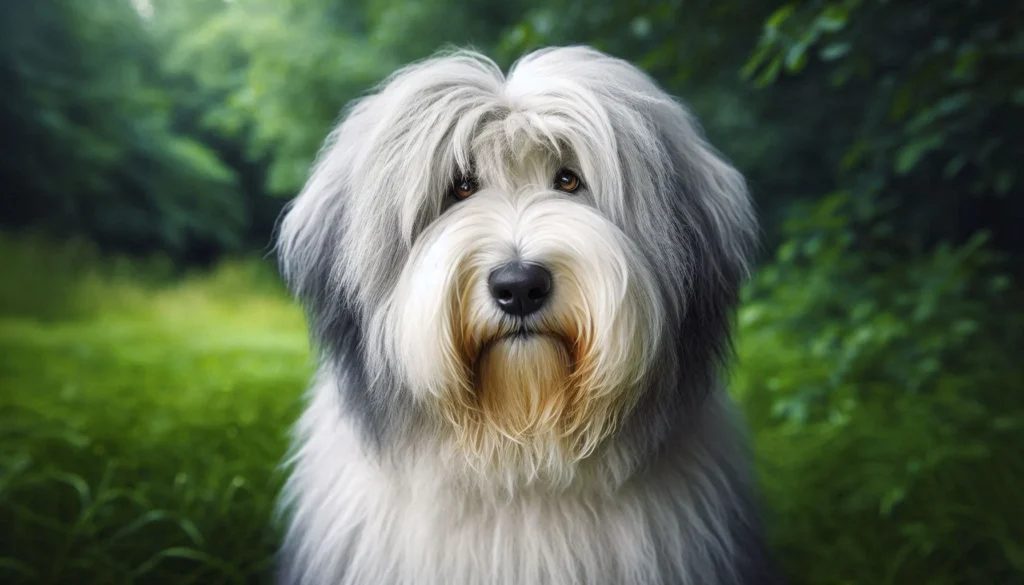
The Old English Sheepdog excels as a family pet, provided their needs are met.
Living Environment Considerations
While they can adapt to various living situations, they thrive best in homes with a yard where they can run and play. Apartment living is possible with sufficient daily exercise.
Energy Levels
Their energy levels are moderate, requiring regular exercise to prevent boredom and destructive behavior. They enjoy activities that engage both their body and mind.
Fun Facts and Trivia
- Hollywood Star: The Old English Sheepdog has appeared in several movies and TV shows, including “The Shaggy Dog” and “Please Don’t Eat the Daisies.”
- Mascot: The breed is the official mascot of the Dulux paint company, known as the “Dulux Dog.”
- Royal Connection: The breed has found favor with royalty, including Queen Elizabeth II, who owned Old English Sheepdogs.
The Dog Breeds Similar to Old English Sheepdog
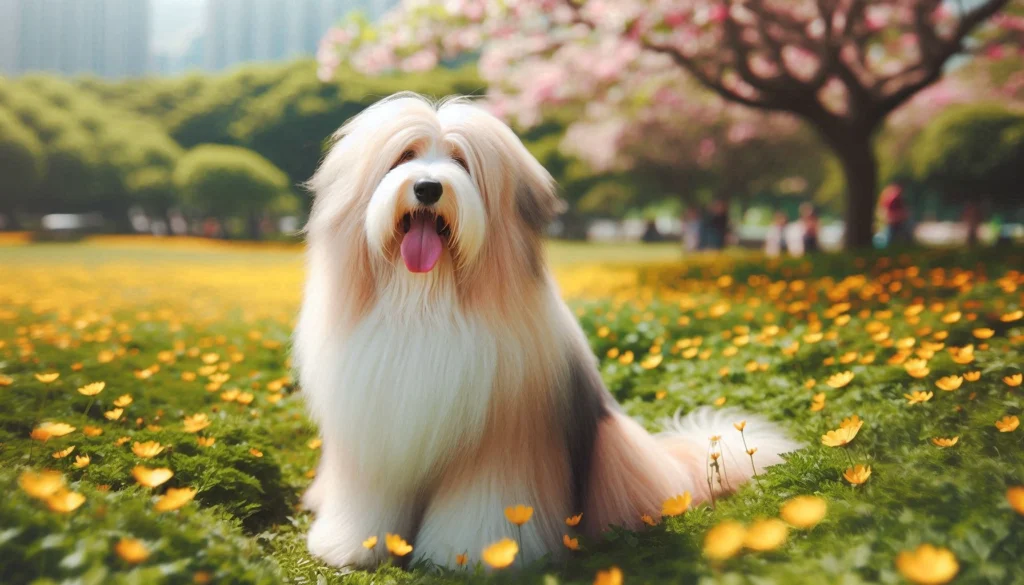
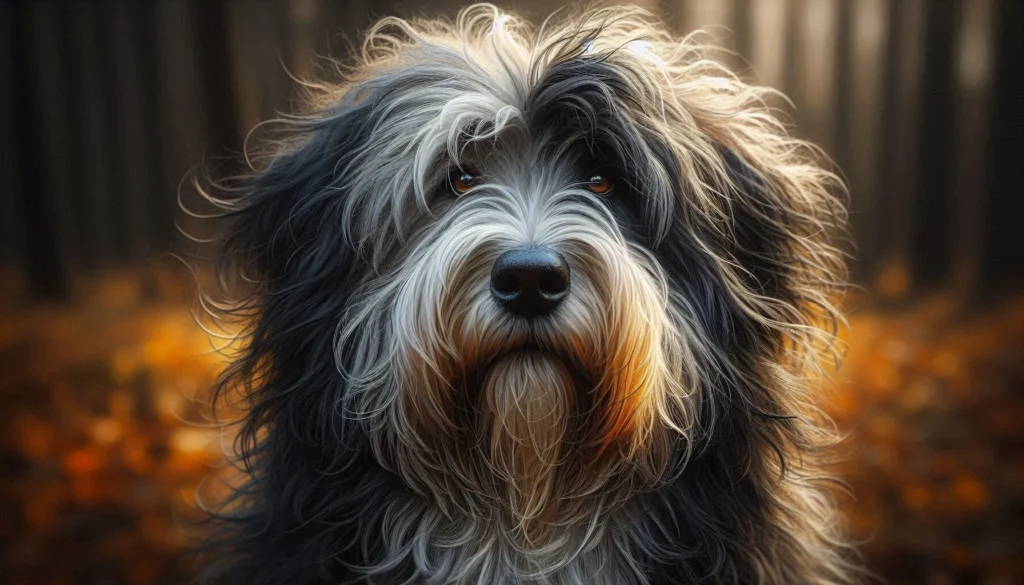
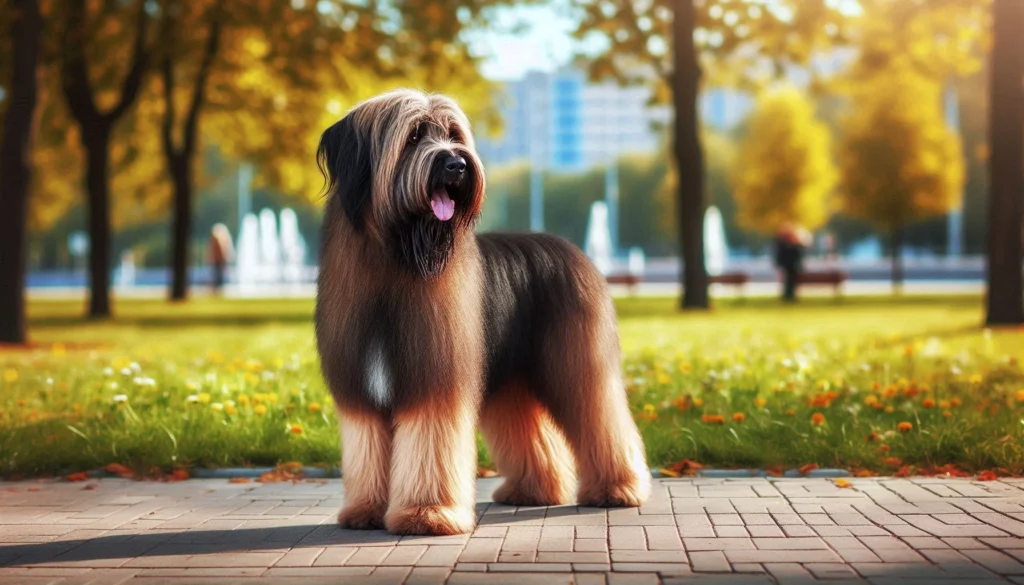
- Bearded Collie:
- Known for their long, flowing coat and lively personality, Bearded Collies are excellent herding dogs with a friendly and affectionate nature.
- Polish Lowland Sheepdog:
- This medium-sized herding dog has a shaggy, dense coat and is known for its intelligence and loyalty. They are excellent working dogs and companions.
- Briard:
- With their distinctive long, wavy coat and strong herding instincts, Briards are both protective and affectionate, making them great family pets and working dogs.
Conclusion
The Old English Sheepdog is a wonderful blend of beauty, intelligence, and affection. Their unique appearance and friendly nature make them stand out as both working dogs and beloved family pets. With proper care, training, and socialization, they can bring joy and companionship to any household. If you’re considering adding an Old English Sheepdog to your family, be prepared for a loving and loyal companion who will quickly become an integral part of your life.
FAQ
Is the Old English Sheepdog a dangerous dog?
No, the Old English Sheepdog is not considered a dangerous dog. They are known for their gentle and friendly nature, especially towards children and other pets.
Is the Old English Sheepdog the best guard dog to protect you or your family?
While they can be protective of their family, Old English Sheepdogs are not typically aggressive guard dogs. Their primary qualities are loyalty and affection, making them better suited as family companions rather than guard dogs.
